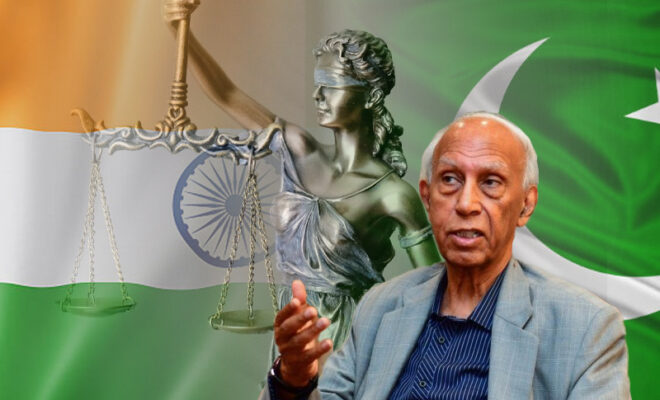Pak-origin Ishtiaq Ahmed’s Controversial Stand on UCC And Impact On Indian Politics

Muslim women shouldn’t be subjected to prejudice. There is no reason why common civil laws cannot exist if there are common criminal laws. The Common Citizen Code. According to Ishtiaq Ahmed in an exclusive interview with news sources.
Ishtiaq Ahmed, a Swedish political scientist and author of Pakistani ancestry, claimed in an exclusive interview with a news source that common Muslims in India do not fear the majority community.
The emeritus professor of political science at Stockholm University claimed they conduct their daily lives just like any other regular citizen would.
Ahmed however, claimed that the BJP, which is currently in power, engages in vote-bank politics. He said-I drew attention to the fact that the BJP does not have a single Muslim MP, even among members of the Rashtriya Swayamsevak Sangh (RSS).
Ahmed expressed his strong support for the Uniform Civil Code (UCC) in his statement…..
Ahmed expressed his strong support for the Uniform Civil Code (UCC) in his statement. Islam prohibits discrimination against women. There is no reason why common civil laws cannot exist if there are common criminal laws. He remarked, “I call it the common citizen code.”
Ahmed elaborated on the principles of Pakistan’s founder Muhammad Ali Jinnah by saying, He never wanted a secular Muslim democracy. Making Pakistan an ethno-religious state was always his goal. I have examined his various books for analysis. He continued that his only concern was that Muslims who remained in India would rush to Pakistan and overrun the country.
More About UCC, in India-
Prime Minister Narendra Modi’s June 27 call for a Uniform Civil Code (UCC) in Bhopal was the BJP’s third and final ideological goal. The Ram Mandir in Ayodhya and Article 370 abolition are the other two. Why does the BJP want a UCC when its exclusionary majoritarian ideology accepts inequality between the majority and minority? Mr. Modi asked in Bhopal: How can a family (nation) have different laws for its members (communities)? B.R. Ambedkar also asked: Hinduism has four castes—why? Why do some castes humiliate Dalits? These twin questions would determine India’s egalitarian future. The Hindu Right seems overly enthusiastic about the UCC and ignores Ambedkar’s caste inequality question. Although a UCC is recommended by the Constitution, it has historically been viewed as a collective goal. Not even well-known secular public intellectuals have endorsed it.
The UCC effectively refers to a single law that would govern all religious communities concerning issues like marriage, divorce, inheritance, adoption, and maintenance. The Uttarakhand government announced that its draught, which includes provisions for the age of girls for marriage and circumstances for live-in relationships, among other things, was ready and would be implemented soon, despite recent comments from Prime Minister Narendra Modi that India needed a UCC because the nation could not function with a dual system of separate laws for separate communities. Muslim organizations had a solid response to the news.
The News Network said, however, found that at least 67.2% of Muslim women support a common law for all Indians for personal matters like marriage, divorce, adoption, and inheritance in the country’s largest Uniform Civil Code (UCC) survey.
Also Read:- What Are Private Members’ Bills? Can They Fill Gaps In Existing Laws?
UCC and Indian Politics-
Gender equality—the core of a UCC—is a problem in many Western liberal democracies, including India. French courts hear such cases from Moroccan and Algerian Muslim immigrants. Canada, Australia, and the US use religious-based ADR. Political parties of India should come and give their views and thoughts on UCC, but major parties in India are still not giving any clear statement for fear of losing voters and votes, on the other hand, BJP, Shiv Sena, and some other parties have shown their clear views by supporting UCC.
A uniform code for a Country like India (UCC) is not a bad idea though!



